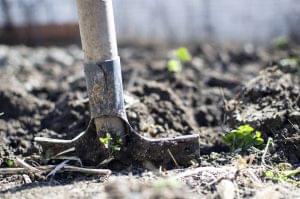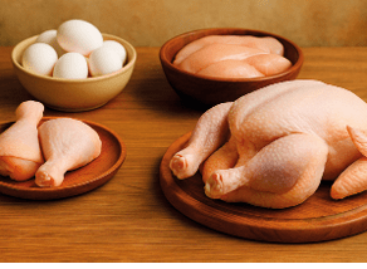The aim of the new agricultural support system is to increase efficiency
During consultations and negotiated compromises with the European Commission, the Hungarian government has created a new agricultural support system, the aim of which is to increase efficiency, said the State Secretary for Agriculture and Rural Development of the Ministry of Agriculture in Orosháza on Thursday.

(Photo: Pixabay)
Zsolt Feldman said at the local farmers’ professional forum that the Common Agricultural Policy between 2023 and 2027 will provide all Hungarian farmers with the opportunity to develop and create the conditions for their own sustainable production practices. The State Secretary explained that there will be significant changes in direct subsidies. In the case of farmers with more than 10 hectares in the unified application, the requirements for greening are included in the conditions of the basic support, the size of which is expected to be around 147 euros per hectare. Regarding the agro-ecology program, the state secretary said: farmers who make voluntary commitments every year – in all land use categories of the plant’s area – can participate, for example, reduce the use of pesticides, cultivate the soil without rotation, or practice nature-friendly turf management. They are expected to receive an additional subsidy of 81 euros per hectare for arable land, lawns and plantations. There is also a significant change in crop rotation: every producer with more than 10 hectares must grow a new crop every year on at least one-third of his area compared to the previous year, so all fields must be turned over within three years. The exception to this is hybrid corn seed production, which can be continued in a given area for four years. Perennial field crops and plants grown in flood cultivation are also exceptions. The application of regular second sowing is in itself a change of sowing, he added.
Zsolt Feldman also revealed details in his presentation
The crop diversification obligation is excluded from the conditions of the basic support, but it is included in the agro-ecological program among the possible undertakings, in a slightly changed form. The support for young farmers will increase to 157 euros per hectare, the size of the eligible area will also increase to 300 hectares from the current 90, the state secretary announced. Zsolt Feldman announced that the support for the cultivation of industrial vegetables will be increased, but the level of support for extensive fruit plantations will decrease. The politician emphasized that until the end of 2024, the subsidies of the agro-environmental management program, which started this year and affects 17,000 farmers and about 1.2 million hectares, will run unchanged. The state secretary said that they would like to spend more than 50 percent of the rural development resources on investments in order to make farming efficient in terms of resources, energy and input materials. Among the supported areas are developments related to animal husbandry, food industry, energy efficiency and green investments, as well as precision farming, through which greater crop security can be achieved with optimized use of input materials. For the majority of investments, the support intensity will be 50 percent, young farmers, those participating in producer cooperation, and those engaged in organic farming may request a higher proportion of funds. The state secretary announced that the employment obligation tied to the base workforce will be removed from the conditions of the tenders.
The generational change is supported by a new form of support, which comes into force on January 1, 2023, and is related to the Law on the Transfer of Business
In the course of the subsidies, incentives are used to help water retention: thus, among other things, the edges left on the edge of the plots and the uncultivated wetland areas of the fields will be eligible for support. The third support leg of the common agricultural policy will be the redistributive support, as a new element, farmers can claim additional support of around 80 euros per hectare after the first 10 hectares, and around 40 euros per hectare between 11 and 150 hectares, said the state secretary.
A.M
Related news
Avian influenza has appeared in a new farm in Csongrád-Csanád County
🎧 Hallgasd a cikket: Lejátszás Szünet Folytatás Leállítás Nyelv: Auto…
Read more >UBM may continue its international expansion
🎧 Hallgasd a cikket: Lejátszás Szünet Folytatás Leállítás Nyelv: Auto…
Read more >Related news
Festival buzz at the 60th anniversary EuroShop trade fair
🎧 Hallgasd a cikket: Lejátszás Szünet Folytatás Leállítás Nyelv: Auto…
Read more >Historic price reduction at ALDI
🎧 Hallgasd a cikket: Lejátszás Szünet Folytatás Leállítás Nyelv: Auto…
Read more >A stable compass in the Hungarian FMCG sector for 20 years
🎧 Hallgasd a cikket: Lejátszás Szünet Folytatás Leállítás Nyelv: Auto…
Read more >







